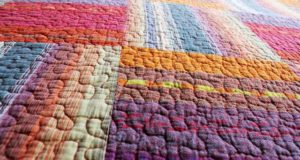 Many of those living off the grid live in the colder parts of the country, where winters last for months and ice and snow dominate the landscape. Being cooped up in your house during these winter months can lead to cabin fever. While no actual fever occurs, a person may become ill-tempered and restless, due to the lack of exercising the mind and body.
Many of those living off the grid live in the colder parts of the country, where winters last for months and ice and snow dominate the landscape. Being cooped up in your house during these winter months can lead to cabin fever. While no actual fever occurs, a person may become ill-tempered and restless, due to the lack of exercising the mind and body.
Therefore, you need to engage in both physical and mental activities to re-energize your body and stimulate the brain. You probably have daily chores (feeding the chickens or milking the goat) that force you to get outside and get some fresh air, regardless of how cold it is. Force yourself to take a brisk walk—even if it’s windy and snowing. Even a short walk can rejuvenate how you feel.
However, even with some daily activity, there’s still plenty of time to hang around the house. The following activities can help keep your mind healthy and occupied on those long winter afternoons and seemingly unending dark nights.
1. Grow Herbs and Flowers Indoors
Growing herbs and flowers is an activity that engages the right side of your brain. This side is the creative side, and it needs to be occupied to avoid cabin fever. While you are planning and tending to your inside plants, your brain is focused on these tasks rather than wishing it was sunny and warm outside.
Location is everything when growing herbs indoors. They require some amount of sunlight, so place near a south-facing window or under a skylight. Rotate the plants regularly to make sure all the plants get enough light and don’t get spindly. Another option for light is fluorescent lighting.
Without A Doubt The Best Kept Secret In Self-Reliance Gardening…
Growing herbs gives you something to look forward to, knowing that you will soon have herbs for medicinal or cooking uses. And you’ll spend time doing all the small tasks that growing herbs requires: watering, pinching back some of the herbs, and carefully pruning woody ones like rosemary and sage.
2. Plan your Spring Garden
You can spend hours dreaming about how great your spring garden is going to be. You can spend even more time flipping through seed catalogs admiring the photos and trying to decide what to grow. Then you can organize your garden, mapping it out to ensure that you’re using companion planting and rotating crops.
3. Eat the Right Food
Some foods came help improve our moods, while others can leave us mentally sluggish.
For protein, lean meat and fish has the amino acid tyrosine, which has a beneficial impact on the chemicals in the brain. They also have the amino acids norepinephrine and dopamine, which some believe regulate mood swings. Lean meat and protein provide plenty of energy to help ward against the fatigue often felt during cabin fever.
Research has shown that people with more omega-3 fatty acids are less likely to get depressed. Walnuts, salmon, flax seeds and mackerel are good sources of omega-3.
Avoiding sugar is also helpful. Research has shown that too much sugar and too little omega-3 can make your brain sluggish. While sugar may give you a temporary boost, you’ll feel worse later.
4. Start a Hobby
Choose a hobby you like that keeps your brain occupied. Play chess over the Internet, or play a musical instrument, or do anything else that keeps your brain occupied.
If you want to take it up a notch, combine this hobby with your indoor herb garden: herbal antibiotics. Destructive bacteria are becoming resistant to the synthetic antibiotics used in medicine, and there is real danger of a health epidemic from drug-resistant bacteria that can’t be stopped by modern antibiotics. Surgical wound infections, meningitis, tuberculosis, malaria and pneumonia are serious illnesses all due to bacteria that have become increasingly drug-resistant, and someday modern antibiotics may not work. For those living off the grid, experimenting with natural remedies is a natural hobby to have.
There are many herbal remedies for the types of illnesses caused by infections. You can grow herbs to make these remedies. For example, sage can be used for infected wounds, throat and respiratory infections, and dysentery. According to Stephen Buhner, a leading advocate for moving away from synthetic antibiotics, you can use sage tea for throat infections and sage power on infected wounds.
You’ll spend lots of time harvesting the herbs, and making teas and tinctures with them.
5. Reorganize
Research suggests that clutter leads to a person’s increased restlessness. Occupy some time with a reorganizing project. For example, you can install more shelving in the pantry, and reorganize how to store everything, or rearrange a closet. Afterwards, there’ll be satisfaction from a job well done.
Sign up for Off The Grid News’ weekly email and stay informed about the issues important to you
 Off The Grid News Better Ideas For Off The Grid Living
Off The Grid News Better Ideas For Off The Grid Living




